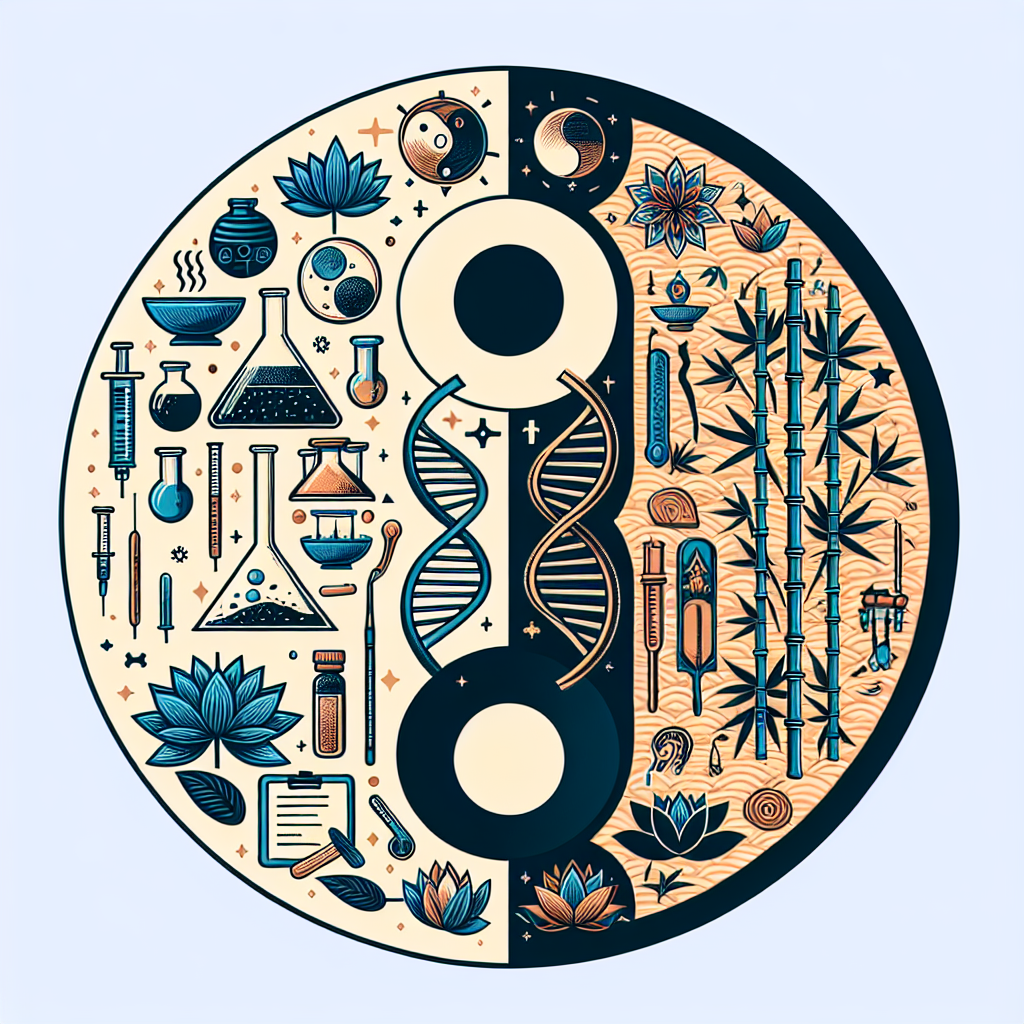Western Science Meets Eastern Philosophy: A New Outlook on Chronic Pain Treatment
Chronic pain is one of the most pervasive and challenging health issues affecting millions of people worldwide. Defined as pain persisting for over three months, chronic pain can significantly impact quality of life, emotional well-being, and overall functionality. Traditional Western medical treatments and Eastern philosophical approaches offer distinct paradigms for understanding and treating chronic pain. However, a growing body of evidence suggests that integrating these contrasting approaches might provide a more comprehensive and effective strategy for managing chronic pain.
Western Medical Approach
Western science and medicine have long been centered on a mechanistic view of the human body. The prevailing approach involves identifying and treating the specific physical causes of pain through pharmacological interventions, surgery, and physical therapy.
1. Pharmacological Treatments: Western medicine often employs analgesic medications, including nonsteroidal anti-inflammatory drugs (NSAIDs), opioids, and antidepressants to manage chronic pain. While these medications can provide significant relief, they come with a risk of side effects and dependency, particularly in the case of opioids.
2. Surgery: For certain conditions like herniated discs or advanced arthritis, surgical interventions may be recommended. While often successful, surgery carries inherent risks and may not always address the underlying cause of pain.
3. Physical Therapy: Physical therapy aims to strengthen muscles, improve joint mobility, and reduce pain through targeted exercises and techniques. This approach can be very effective, especially when combined with other treatments.
4. Psychological Interventions: Cognitive-behavioral therapy (CBT) and other psychological interventions are increasingly recognized in Western medicine for their role in managing chronic pain. By addressing the mental and emotional aspects of pain, these therapies aim to alter pain perception and improve coping strategies.
Eastern Philosophical Approach
Eastern philosophy, encompassing traditional Chinese medicine (TCM), Ayurveda, and other holistic systems, offers a fundamentally different viewpoint. Rather than focusing on isolated biological mechanisms, Eastern practices emphasize a holistic understanding of health, viewing the body, mind, and spirit as interconnected.
1. Traditional Chinese Medicine (TCM): TCM includes acupuncture, herbal medicine, and Qi Gong. Acupuncture, in particular, has gained significant recognition in the West for its ability to alleviate chronic pain by restoring the balance of Qi (energy flow) through the body.
2. Ayurveda: Ayurveda, the ancient Indian system of medicine, focuses on balancing the body’s three doshas (vata, pitta, and kapha) to maintain health. Ayurvedic treatments for chronic pain may include herbal remedies, dietary changes, massage, and yoga.
3. Meditation and Mindfulness: Eastern philosophies place a strong emphasis on meditation and mindfulness practices to cultivate mental clarity and emotional balance. Techniques such as Vipassana meditation and Tai Chi have been shown to reduce pain perception and improve overall well-being.
4. Diet and Lifestyle: Both Ayurveda and TCM advocate for dietary and lifestyle changes tailored to an individual’s unique constitution. These changes aim to restore balance and promote natural healing processes.
Comparative Analysis
Holistic vs. Mechanistic
The most striking difference between Western and Eastern approaches is the holistic versus mechanistic view of the human body and health. Western medicine tends to dissect the body into parts and systems, treating each in isolation. In contrast, Eastern philosophies view the body as an integrated whole, where physical, mental, and spiritual aspects are deeply interconnected.
Symptom Management vs. Root Cause
Western medicine often focuses on symptom management. For example, pain relief might be achieved through medication without necessarily addressing the underlying cause. Eastern approaches, however, aim to treat the root cause by restoring balance and enhancing the body’s natural healing mechanisms.
Short-term Relief vs. Long-term Wellness
Pharmacological treatments in Western medicine can provide immediate but often temporary relief. Eastern practices, such as acupuncture and herbal medicine, may take longer to show results but aim for long-term wellness and prevention of recurrence.
Integrative Approach: Bridging the Gap
Increasingly, healthcare practitioners and researchers recognize the value of integrating Western and Eastern approaches to offer a more holistic and effective treatment for chronic pain.
1. Integrated Pain Management Programs: Programs that combine physical therapy, pharmacological treatments, acupuncture, and meditation can provide a multi-faceted approach to pain management. Such programs aim to address both the physical and emotional aspects of pain.
2. Herbal Medicine and Pharmacology: Combining TCM or Ayurvedic herbal remedies with Western pharmacology might offer enhanced efficacy with reduced side effects. For instance, certain herbal compounds have been shown to potentiate the effects of conventional pain medications.
3. Mind-Body Therapies: Practices like mindfulness-based stress reduction (MBSR) and yoga, rooted in Eastern philosophy, are increasingly incorporated into Western pain management protocols. These therapies help patients cope with pain and improve their overall quality of life.
4. Patient Education and Lifestyle Changes: Educating patients about the benefits of lifestyle changes, dietary adjustments, and stress management techniques can complement conventional treatments. Encouraging patients to adopt holistic practices empowers them to take an active role in their healing process.
Conclusion
The treatment of chronic pain stands at the intersection of Western science and Eastern philosophy, offering a unique opportunity to blend the strengths of both paradigms. While Western medicine excels in diagnosing and managing acute symptoms, Eastern philosophies provide invaluable insights into long-term wellness and holistic healing. By embracing an integrative approach, we can develop more comprehensive and effective strategies for managing chronic pain, ultimately improving the lives of millions who suffer from this debilitating condition. The future of chronic pain treatment lies in the harmonious convergence of these diverse yet complementary traditions.

